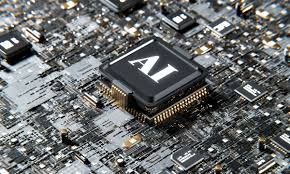Italy unveils strategic plan for AI development

Rome: The Italian government has released a comprehensive plan to enhance AI capabilities across research, public administration, enterprise, and education.
Italy’s AI strategy. The Italian government has launched its Italian Strategy for Artificial Intelligence 2024-2026, a comprehensive plan to enhance the country’s artificial intelligence (AI) capabilities.
The strategy begins with thoroughly analysing the global AI landscape and Italy’s current positioning. Recognizing AI’s transformative potential, the document emphasises the need for Italy to leverage AI technologies to improve productivity, public services, and economic growth.

The strategy aims to align AI development with European ethical standards, ensuring solutions are reliable, sustainable, and centred on human values.
The blueprint. The strategy, developed with the support of the Agency for a Digital Italy (AgID), outlines a detailed framework for AI integration across four key areas: research, public administration, enterprise, and training.
Insofar as research, the plan focuses on strengthening Italy’s AI research ecosystem. It aims to retain and attract top talent, promote interdisciplinary projects, and support foundational and applied research.
For public administration, the strategy seeks to improve the efficiency and quality of public services through AI integration. This includes developing guidelines for AI adoption and procurement, and ensuring that AI applications are secure and transparent. It also emphasises the importance of interoperability across different regions and services to provide a unified and effective public sector.
The strategy also supports the development and adoption of AI technologies in the enterprise sector, particularly among small and medium-sized enterprises (SMEs). It promotes public-private partnerships to drive innovation and enhance Italy’s competitiveness in the global market, encouraging the creation of AI-driven startups and the development of a robust AI industry within the country.
A push for education. Finally, the strategy also underscores the importance of education and skills development.
It includes initiatives to integrate AI into the educational curriculum at various levels and provides upskilling and reskilling programs to prepare the workforce for an AI-driven economy.
To further support these efforts, the strategy emphasises collaborations between educational institutions and industry to ensure the training provided is aligned with market needs. The goal is to ensure that Italian citizens are equipped with the necessary skills to navigate and contribute to the evolving technological landscape.





